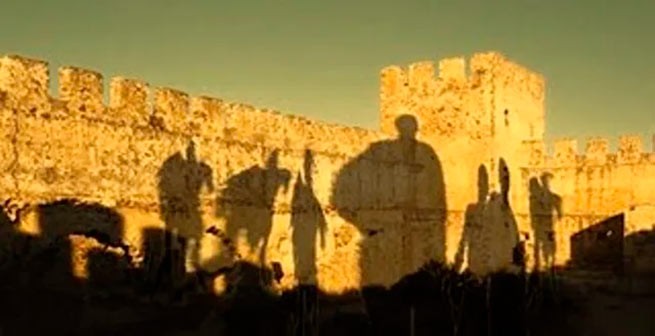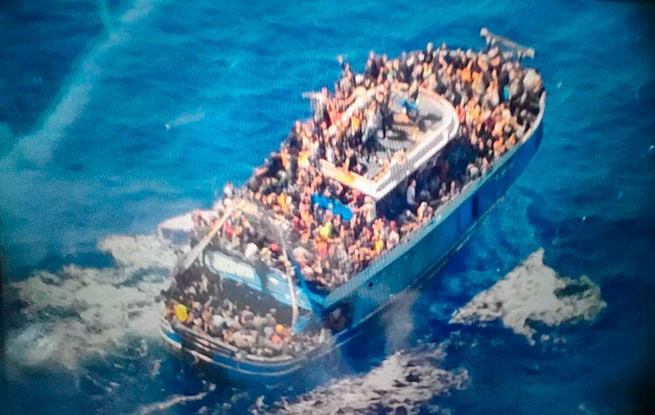Frontex, which is under investigation, says Greece was late in declaring a search and rescue operation for the deadly shipwreck off the coast of Pylos.
He blames the competent Greek authorities for the tragic shipwreck off Pylos in June 2023, which killed about 650 migrants. According to a report by the European Border and Coast Guard Agency, “It appears that the Greek authorities were unable to announce a search and rescue operation in a timely manner and to dispatch sufficient appropriate means to rescue the migrants in a timely manner.”
The Office of Fundamental Rights believes that Frontex followed applicable procedures when it – based on aerial surveillance – classified the Adriana as non-dangerous and simply “transferred the information collected to the Greek authorities.”
It is added that the “bureau” (Frontex) regrets the lack of information provided by the Greek authorities during the investigation, but continues to await new data from the national investigations that are currently underway.”
It should be noted, however, that Frontex itself is also being investigated for its involvement in the Pylos tragedy. European Ombudsman Emily O’Reilly has launched her own investigation into his role in search and rescue operations in the Mediterranean after the shipwreck.
Conclusions Frontex
On the night of 13/14/06/2023, the overcrowded fishing vessel “Adriana”, carrying about 750 migrants from Libya to Italy, capsized and sank off the coast of Pylos, in the Greek search and rescue (SAR) zone. The ship was initially reported by one of the non-governmental organizations that was in contact with the migrants on board to the Italian Maritime Rescue Coordination Center (MRCC). He informed the Greek authorities and Frontex.
The latter dispatched a plane that spotted the crowded but slowly sailing ship around noon local time. Frontex did not mark the vessel as in distress or issue a distress signal.
Greek authorities responsible for coordinating aid did not initially announce a search and rescue. Instead, late in the evening, with the help of merchant ships in the area, Greek authorities attempted to assist the Adriana with food and water. Early the next morning, the ship capsized and sank – what some migrants believe was the result of attempts by Greek authorities to tow it away. One hundred and four people were rescued from the sea by the Greek coast guard and merchant ships, and the death toll stands at 650.
“Everything is fine” for one’s own actions
The Office of Fundamental Rights believes that Frontex followed applicable procedures when it simply passed on the information it collected to the Greek authorities. At the same time, the Bureau believes that in the future, based on the revised assessment methodology, the team should more carefully evaluate such cases to determine the need for a Mayday signal, in particular when the competent national authorities do not provide information on the assessment of the situation and next steps, such as declaring a vessel “in danger” or the start of a search and rescue operation.
Within hours of the vessel’s discovery, Frontex made three attempts, offering additional Frontex Surveillance Aircraft (FSA) flights. The Greek authorities did not respond to Frontex’s repeated proposals until the sinking of the Adriana.
Overall, the Bureau is unable to conclude what caused the Adriana to capsize and sink. However, it appears that the Greek authorities failed to announce a search and rescue operation in a timely manner and deploy sufficient appropriate means to rescue the migrants in a timely manner. The Bureau regrets the lack of information provided by the Greek authorities during the investigation, but continues to await further information from them.
National investigations are currently underway.







More Stories
UK: controversial bill on deportation of migrants to Rwanda passed
Chaos in Paris due to Afghan demonstration
Why only a few Ukrainian refugees in Germany found work (video)